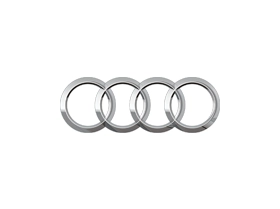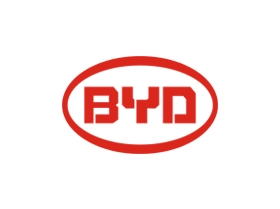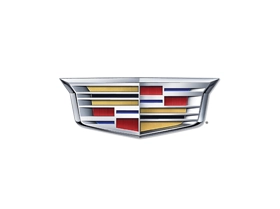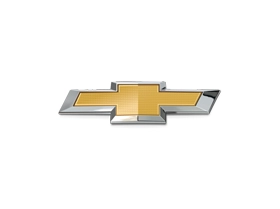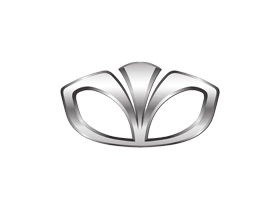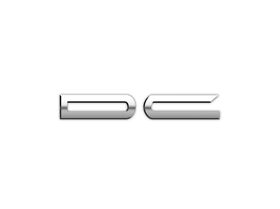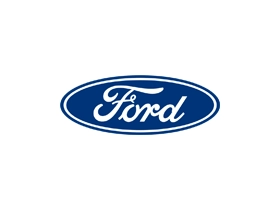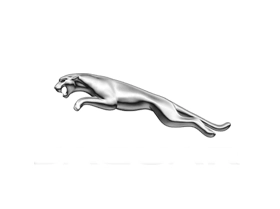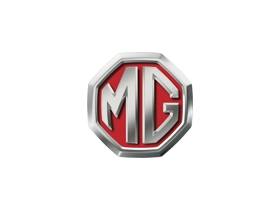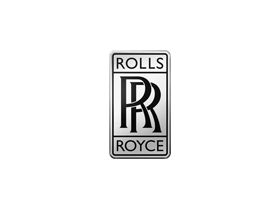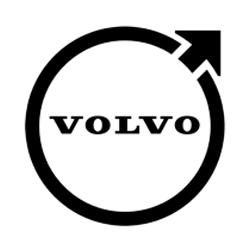Select Your Car Brand
How This Works?
-
Step 1
Enter Car Details
Fill in your car details to get the best evaluation instantly.

-
Step 2
Share Contact Details
Share your personal details and our experts will get in touch with you.

-
Step 3
Book Inspection
Book your car inspection to get the best offer on your used car.

Frequently Asked Questions
Selling your car on V3Cars means choosing a platform backed by years of automotive expertise. With a transparent, hassle-free process, V3Cars connects you directly with genuine buyers, ensuring you get the best value for your car without unnecessary delays or complications.
Yes, V3Cars is an excellent choice for selling your car. The platform offers:
- Maximum Exposure: Access to a vast network of car buyers and enthusiasts.
- Seamless Process: From creating your listing to completing the sale, V3Cars ensures every step is straightforward and convenient.
- End-to-End Support: Assistance with RC transfers, buyer interactions, and evaluations, making the entire experience stress-free.
Selling your car on V3Cars is simple and quick:
- List Your Car: Share key details, including make, model, mileage, and condition.
- Add Photos & Features: Upload quality images and highlight unique selling points.
- Connect with Buyers: Use V3Cars’ secure communication channels to interact with serious buyers.
- Finalize the Sale: Get guidance from V3Cars for ownership transfer and other formalities.
With a detailed listing and clear photos, many sellers receive inquiries soon after posting. V3Cars’ user-friendly platform accelerates the process, allowing you to find a buyer and close the deal swiftly and efficiently.
V3Cars provides an unparalleled car-selling experience, offering:
- Transparency: Clear and upfront processes with no hidden charges.
- Ease of Use: A streamlined interface for quick listings and smooth communication.
- Seller-Friendly Policies: Elimination of intermediaries ensures you get the best resale value.
- Comprehensive Support: From evaluations to RC transfers, V3Cars has you covered every step.
The RC (Registration Certificate) transfer process for an old car in India involves the following steps:
Sale Agreement: Create a sale agreement between you (the seller) and the buyer, mentioning the agreed-upon terms and conditions of the sale, including the sale price, date of transfer, and other relevant details. Both parties should sign the agreement.
Obtain Required Documents: Gather all necessary documents for the transfer process, including the following:
- Original RC: Provide the original copy of the Registration Certificate.
- Sale Agreement: Carry a copy of the sale agreement.
- Form 29 and Form 30: These are the application forms for transferring ownership, which need to be duly filled and signed by both the seller and the buyer.
- Valid Insurance: Ensure that the car has a valid insurance policy.
- Pollution Under Control (PUC) Certificate: Have a valid PUC certificate.
- Identity and Address Proof: Carry identity and address proofs of both the seller and the buyer (such as Aadhaar card, PAN card, passport, or driver's licence).
- NOC (No Objection Certificate): If the car was registered in a different state and is being transferred to another state, a NOC from the original RTO may be required.
- Road Tax Receipt: Carry the road tax receipt to show that the tax has been paid up to date.
Visit the RTO: Both the seller and the buyer should visit the Regional Transport Office (RTO) responsible for the area where the vehicle is registered. Schedule an appointment if required.
Submit Application and Documents: Submit the completed Form 29 and Form 30, along with the other necessary documents, to the RTO. Pay the applicable transfer fees.
Vehicle Inspection: The RTO may conduct a physical inspection of the vehicle to verify its condition and match it with the details mentioned in the documents.
Obtain Acknowledgment: Once the transfer application is submitted and the necessary fees are paid, you will receive an acknowledgment receipt. This serves as proof of submission and can be used for tracking the progress of the transfer process.
Follow-up and RC Collection: Follow up with the RTO to check the status of the transfer. Once the transfer process is completed, the buyer can collect the updated RC from the RTO.
Selling a car with expired registration in India can be challenging as valid registration is typically required for a legal transfer of ownership. However, you can follow these steps to sell your car with expired registration:
- Obtain a non-use certificate (NOC)
- Complete the transfer of ownership (TO) process
- Clear pending dues and fines
- Sale agreement and payment
- Handover process
- Buyer's responsibility
To sell your old car in India, you will typically need the following documents:
- Vehicle registration certificate (RC)
- Insurance documents
- Pollution under control (PUC) certificate
- Original invoice and sale receipt
- Service and maintenance records
- NOC (No Objection Certificate)
- Form 28, Form 29, and Form 30
Car valuation refers to the estimated worth or market value of a vehicle. It is the price that a buyer and seller might agree upon based on factors such as the car's age, mileage, condition, brand, model, features, and market demand. Accurately determining the car's valuation helps sellers set a fair asking price and assists buyers in making informed decisions.
There are several methods to calculate car valuation:
- Online Car Valuation Tools
- Comparative Market Analysis (CMA)
- Professional Appraisal
- Auction Results
The best way to market your old cars is to use the V3Cars platform. It is easy to sell your used car to multiple buyers with our reliable program.
Several car brands and models in India are known for their good resale value. While specific resale values can vary based on factors like condition, mileage, and regional market dynamics, here are some car brands and models that generally have a reputation for retaining their value well:
- Maruti Suzuki: Maruti Suzuki cars, particularly popular models like the Swift, Baleno and Dzire are known for their widespread presence, strong resale value and affordable maintenance costs.
- Honda: Honda cars, including the Honda City, Honda Amaze and Honda Jazz, often have good resale value due to their reliable performance, brand reputation and desirable features.
- Hyundai: Hyundai cars, such as the Hyundai i20, Hyundai Creta and Hyundai Verna are known for their modern styling, feature-packed offerings and competitive resale value.
- Toyota: Toyota vehicles, such as the Toyota Innova Crysta, Toyota Fortuner and Toyota Corolla, have a reputation for durability, reliability and strong resale value, which can be attributed to their build quality and long-term reliability.
- Mahindra: Mahindra SUVs like the Mahindra Scorpio and Mahindra XUV500 are often considered to have good resale value due to their robust build, off-road capabilities and popularity in the Indian market.
- Tata: Tata cars, especially recent models like the Tata Nexon, Tata Tiago and Tata Harrier, have gained popularity and a reputation for improved build quality, features and competitive pricing, resulting in relatively good resale value.
- Ford: Ford cars like the Ford EcoSport and Ford Endeavour are known for their solid build, enjoyable driving experience and decent resale value.
Several factors can cause a car to lose value over time. Here are some common reasons:
- Depreciation
- Mileage
- Age
- Condition
- Market Demand
- Brand and reputation
- Accidents or damage
- Technology and features
The resale value of a car depends on several factors, including:
- Brand and model
- Condition
- Age
- Demand and popularity
- Features and options
- Market conditions
- Regional factors
Yes, generally, the resale value of a car decreases after it has been involved in an accident. There are several reasons for this:
- Vehicle history
- Visible damage
- Vehicle safety and reliability
- Insurance and warranty considerations
- Market perception
Several factors can significantly impact the resale value of a car. Here are some key factors that tend to have a substantial influence:
- Vehicle brand and model
- Vehicle condition
- Age of the vehicle
- Supply and demand
- Features and options
- Market conditions
In India, the Goods and Services Tax (GST) rate for the sale of used cars depends on whether the vehicle is classified as a "motor vehicle" or a "used vehicle."
- Motor Vehicles: If the used car is considered a motor vehicle and is sold by a registered dealer, the GST rate is currently 28% on the margin of the transaction. The margin is calculated as the difference between the selling price and the purchase price of the vehicle.
- Used Vehicles: If the used car is classified as a used vehicle and is sold by an individual (not a registered dealer), the GST does not apply. However, other taxes, such as state-specific road tax or vehicle registration charges, may still be applicable.
There are several popular options for selling a car, and the best place for you may depend on your individual circumstances and preferences. Here are some common places to sell cars:
- Online classified websites
- Online car marketplaces
- Dealerships
- Social media
- Auctions
- Consignment
To sell your old car in India, you can follow these steps:
- Prepare your car
- Determine the selling price
- Gather necessary documents
- Advertise your car
- Respond to inquiries
- Arrange test drives
- Negotiate and complete the sale
- Transfer ownership
Platform like V3Cars allow you to list your car for sale and connect with potential buyers. These websites typically have a wide reach and attract a large number of car shoppers. However, you may need to invest some time and effort in creating an appealing listing, responding to inquiries, and meeting with potential buyers.
Trading in an old car can be worth it in certain situations, but it depends on several factors. Here are some points to consider when deciding whether trading in your old car is worthwhile:
Convenience: Trading in your old car can be a convenient option as it eliminates the need to find a buyer, negotiate a price, and handle the paperwork involved in a private sale. Dealerships typically handle the trade-in process, making it more streamlined and hassle-free.
Time and Effort: Selling a car privately can take time and effort. If you prefer a quick and straightforward process, trading in your old car to a dealership can be a more time-efficient option.
Financial Considerations: Trading in your old car can provide a financial benefit by reducing the purchase price of the new car. The trade-in value is deducted from the cost of the new vehicle, potentially lowering your overall expenses.
Tax Savings: In some regions, trading in a car can offer tax advantages. The trade-in value is often subtracted from the purchase price, reducing the taxable amount. It's recommended to check the specific tax regulations in your location.
Condition and Value: The condition and value of your old car play a significant role. If your car is in good condition with a higher trade-in value, it may be more worthwhile to trade it in. However, if your car is in poor condition or has low trade-in value, selling it privately might yield a better financial outcome.
Negotiation: Keep in mind that trade-in offers from dealerships are typically lower than what you might get through a private sale. Dealerships factor in the cost of reconditioning, advertising, and potential profit when making a trade-in offer.
Warranty Period: Many cars come with a manufacturer's warranty that typically lasts for a specific number of years or mileage. It's common for owners to keep their cars at least until the warranty expires to take advantage of any covered repairs or replacements.
Maintenance and Repair Costs: As a car ages, maintenance and repair costs tend to increase. If your car starts requiring frequent and expensive repairs that significantly affect your budget, it may be a sign that it's time to consider replacing it.
Reliability and Safety: Older cars may become less reliable over time and may lack the latest safety features and technologies found in newer models. If your car's reliability is declining or you want access to the latest safety advancements, you might consider upgrading to a newer vehicle.
Lifestyle Changes: Changes in your lifestyle, such as a growing family, long commutes, or new hobbies, may require a different type of vehicle. If your current car no longer meets your needs or preferences, it may be time to look for a replacement.
Resale Value: The resale value of a car typically decreases as it gets older. If maximizing the resale value is important to you, you might consider selling or trading in your car before it depreciates significantly.
When to change your old car depends on several factors, including its condition, reliability, maintenance costs, and personal preferences. Here are some common situations that may indicate it's time to consider changing your old car:
Expensive Repairs: If your car requires frequent and costly repairs, and the overall repair costs outweigh the value of the vehicle, it might be more practical to replace it with a newer model.
Safety Concerns: If your old car lacks essential safety features or has outdated safety technology, upgrading to a newer car with advanced safety systems can provide better protection for you and your passengers.
Reliability Issues: If your car frequently breaks down, leaving you stranded or causing inconvenience, it may be a sign that it's time for a more reliable vehicle.
Fuel Efficiency: Older cars tend to have lower fuel efficiency compared to newer models. If you are spending a significant amount on fuel costs or want to reduce your carbon footprint, upgrading to a more fuel-efficient vehicle can be beneficial.
Lifestyle Changes: Changes in your lifestyle, such as starting a family or a new job with a longer commute, may require a different type of vehicle that better suits your needs.
Financial Considerations: If your current car has high maintenance and running costs, upgrading to a newer model with better fuel efficiency and lower maintenance requirements can potentially save you money in the long run.
The tax implications of selling your old car can vary depending on several factors, such as your country of residence and the specific tax laws in place.






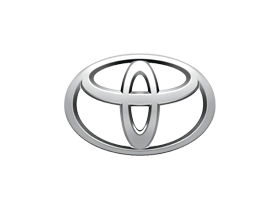




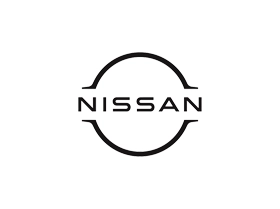


.webp)
.webp)
